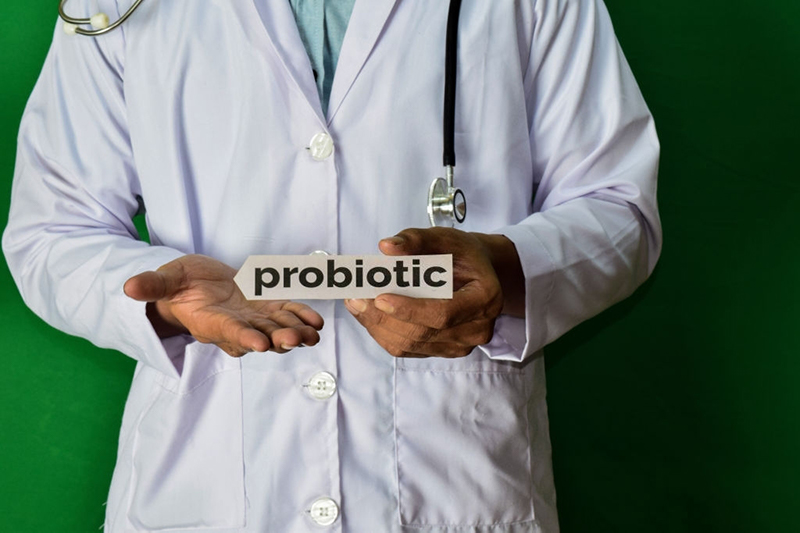Anxiety and depression symptoms can be triggered by stress, which are exacerbated by neuroinflammatory processes. Injections of the bacterium Mycobacterium vaccae can inhibit these stress-related inflammatory reactions in the brain and diminish stress-induced anxious behavior, according to research conducted in mice by a team at the University of Colorado Boulder. probioticseverything.comm. vaccae probiotic
According to the findings published in the journal Brain, Behavior, and Immunity, if similar outcomes could be obtained in humans, it could lead to the creation of probiotic-based vaccinations to help prevent or cure diseases including posttraumatic stress disorder, anxiety, and depression. “Probiotics have been demonstrated to have strong impacts in the domains of cognitive function, anxiety, and terror,” says senior author Christopher Lowry, Ph.D., an associate professor of integrative physiology at CU Boulder. “This work contributes to that understanding by proposing that these beneficial bacteria, or signals produced from these microbes, find their way to the hippocampus and induce an anti-inflammatory state.” probioticseverything.comm. vaccae probiotic
“Immunization with Mycobacterium vaccae Induces an Anti-Inflammatory Milieu in the CNS: Attenuation of Stress-Induced Microglial Priming, Alarmins, and Anxiety-Like Behavior,” according to the CU Boulder team’s published research. probioticseverything.comm. vaccae probiotic
An estimated 25% of people will experience anxiety or trauma-related disorders, as well as other stress-related conditions, at some point in their lives, which can lead to serious depression. Increased stress-induced inflammatory immunological activation and impaired immunoregulation may have a causal role in the development of anxiety and trauma- and stress-related illnesses, according to a growing body of research. Chronic inflammation, for example, has been linked to mood-related neurotransmitters including norepinephrine and dopamine, according to research. Patients with anxiety and trauma-related conditions have lower numbers of regulatory T cells (Tregs), according to studies, and trauma, illness, or surgery can sensitize certain brain regions to mount an inflammatory response to subsequent stressors, which can lead to mood disorders, according to research. probioticseverything.comm. vaccae probiotic
According to lead author Matthew Frank, Ph.D., a senior research associate in the department of psychology and neuroscience, “if you produce an inflammatory immunological response in humans, they immediately show indicators of despair and anxiety.” “Consider how you feel when you get the flu.” probioticseverything.comm. vaccae probiotic
“Given the evidence for decreased immunoregulation and chronic low-grade inflammation in anxiety and trauma-related disorders,” the authors suggest, “microbial interventions that increase Treg, promote immunoregulation, and increase anti-inflammatory signaling may have value in the prevention or treatment of these disorders.” probioticseverything.comm. vaccae probiotic
- vaccae has been proven to boost Treg production and anti-inflammatory cytokines in the past. Mice given injections of a heat-killed M. vaccae preparation and then placed in housing with an aggressive male exhibited less anxiety-like behavior and were less likely to suffer from colitis or peripheral inflammation than control animals, according to a prior study by CU Boulder scientists. According to the researchers, these data show that immunoregulatory and anti-inflammatory therapy can “buffer against the proinflammatory effects of stress.” The question of whether M. vaccae has a direct effect on stress-induced neuroinflammation has never been investigated. probioticseverything.comm. vaccae probiotic
Prior research has shown that stress increases proinflammatory cytokines in the central nervous system (CNS) and makes inflammatory processes more susceptible to future immunological assaults. Such neuroinflammatory processes have been connected to stress-related depressed and anxiogenic effects, according to research. “For example, past exposure to either acute or chronic stresses potentiates the neuroinflammatory and microglial proinflammatory response to later immunological challenges,” the researchers write. probioticseverything.comm. vaccae probiotic
The team decided to investigate the effects of immunizing male mice with a heat-killed preparation of M. vaccae on inflammatory responses in the central nervous system, as well as stress-induced microglial sensitization, in the context of stress-induced anxiety, due to mounting evidence of M. vaccae’s beneficial effects on peripheral anti-inflammatory processes and anxiety. probioticseverything.com
Animals given three independent weekly M. vaccae vaccines displayed significant anti-inflammatory immune responses in the hippocampus, including increased levels of hippocampal interleukin-4 (IL-4) expression, according to their findings. Immunization with M. vaccae also inhibited stress-induced increases in anxiety-like behaviors by blocking priming of the microglia response to immunological challenge. The inoculated mice had reduced amounts of HMGB1, a stress-induced protein, and higher levels of CD200R1, a receptor that keeps glial cells in an anti-inflammatory condition.
The researchers explain, “Alarmins are host macromolecules that can trigger and perpetuate a noninfectious inflammatory response, generally in reaction to cell or tissue injury or immune activation.” “The effect of M. vaccae on Cd200r1, which plays a key role in microglial immunomodulation, is particularly notable.” The effects of M. vaccae on the expression of certain genes in the hippocampus, a brain area that regulates cognitive function, anxiety, and fear, were replicated when the mice were given IL-4 directly.
Dr. Frank explains, “We discovered that this particular bacterium, M. vaccae, actually alters the environment in the brain toward an anti-inflammatory state in rodents.” “We discovered that M. vaccae also prevented the stress-sensitizing effects, resulting in a long-term stress-resilient phenotype in the brain…. If it could be done in people, it could have far-reaching ramifications for a variety of neuroinflammatory illnesses.”
- vaccae was discovered in mud on the Ugandan beaches of Lake Kyoga. Dr. Lowry believes that the bacterium could one day be administered to people, such as military troops and emergency department employees, to help buffer the effects of stress on the brain. He’s also collaborating with a team at the University of Colorado Denver on a trial to see if an oral probiotic with a different bacterial strain, Lactobacillus reuteri, could help veterans with PTSD. “More research is needed,” he says, “but different strains of good bacteria or probiotics could have a similar effect on the brain.”

